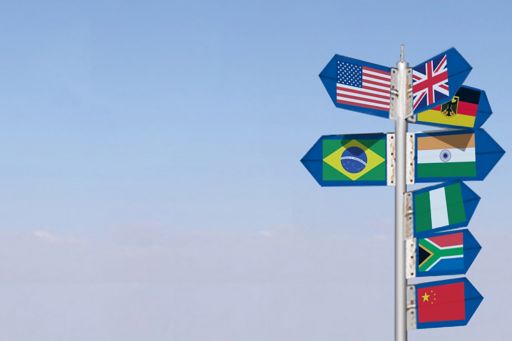On 18 October 2021, the European Commission adopted a report1 on the EU Digital COVID Certificate and its implementation across the European Union (EU). The report shows that more than 591 million digital certificates have been generated and 43 countries and territories2 are connected to the EU system for digital COVID certificates.
The EU has ongoing technical discussion with 28 countries to include them in the EU system for digital COVID-19 certificates.3
WHY THIS MATTERS
The EU Digital COVID-19 Certificate proves that a person has been vaccinated against COVID-19, received a negative test result, or recovered from COVID-19.
The digital certificate makes travelling safer and easier in the 43 countries and territories that are connected to the EU system. For example, the certificate could mean that one does not have to quarantine or get tested upon arrival or repeatedly after arrival.
20 EU member states are using the EU Digital COVID Certificate for domestic purposes, such as for access to large-gathering events, cinemas, restaurants, museums, etc.
Travellers from countries that are not connected to the EU Digital COVID Certificate are subject to requirements that each member state sets out. For example, travellers can be required to provide printed forms of their COVID-19 certificates to enter the country or to enter public establishments such as bars and restaurants. Moreover, travellers can be subject to mandatory isolation and testing upon arrival.
Next Steps for COVID-19 Digital Certificate
The EU Commission will continue to monitor the validity of vaccinations and recovery certificates as well as the use of antibody and rapid antigen tests for recovery certificates, and reconsider options once new scientific guidance is available.
The EU Commission will among other things continue working on improving functionalities of the Digital COVID Certificate system, continue to connect new countries and territories to the system, and continue working with the European Medicines Agency and the European Centre for Disease Prevention and Control for guidance on relevant developments in scientific evidence.4
The next report on the status of the EU Digital COVID Certificate is expected by the end of March 2022.
KPMG NOTE
It is still unclear if the vaccines that are yet to be approved by the European Medicines Agency will be accepted by each EU member state or if people vaccinated with those vaccines will need to test prior to their trips. When an individual is vaccinated with a vaccine that is not approved by the European Medicines Agency, it is up to each EU member state to decide if it will accept that vaccine as a sufficient proof for immunisation.
In any case, it is essential for all travellers to inform themselves thoroughly about all travel requirements before each trip. The EU Commission has set up a website and an app Re-open EU that contain detailed information about travel restrictions in the EU member states.
FOOTNOTES
1 European Commission, "The EU Digital COVID Certificate: a global standard with more than 591 million certificates" (18 October 2021).
2 Countries and territories currently connected to the EU system for the Digital COVID Certificate: 27 EU member states, Albania, Andorra, Faroe Islands, Israel, Iceland, Liechtenstein, Morocco, Monaco, North Macedonia, Norway, Panama, San Marino, Switzerland, Turkey, Ukraine, and The Vatican.
3 For prior coverage, see GMS Flash Alert 2021-243, 23 September 2021.
4 European Commission, "The EU Digital COVID Certificate: a global standard with more than 591 million certificates" (18 October 2021).
* Please note the KPMG International member firm in the United States does not provide immigration or labour law services. However, KPMG Law LLP in Canada can assist clients with U.S. immigration matters.
The information contained in this newsletter was submitted by the KPMG International member firm in The Netherlands.
Connect with us
- Find office locations kpmg.findOfficeLocations
- kpmg.emailUs
- Social media @ KPMG kpmg.socialMedia
Stay up to date with what matters to you
Gain access to personalized content based on your interests by signing up today
© 2024 KPMG Meijburg & Co., a Netherlands partnership and a member of the KPMG network of independent firms affiliated with KPMG International Cooperative (“KPMG International”), a Swiss entity. All rights reserved.
KPMG International Cooperative (“KPMG International”) is a Swiss entity. Member firms of the KPMG network of independent firms are affiliated with KPMG International. KPMG International provides no client services. No member firm has any authority to obligate or bind KPMG International or any other member firm vis-à-vis third parties, nor does KPMG International have any such authority to obligate or bind any member firm.
GMS Flash Alert is a Global Mobility Services publication of the KPMG LLP Washington National Tax practice. The KPMG name and logo are trademarks used under license by the independent member firms of the KPMG global organization. KPMG International Limited is a private English company limited by guarantee and does not provide services to clients. No member firm has any authority to obligate or bind KPMG International or any other member firm vis-à-vis third parties, nor does KPMG International have any such authority to obligate or bind any member firm. The information contained herein is of a general nature and is not intended to address the circumstances of any particular individual or entity. Although we endeavor to provide accurate and timely information, there can be no guarantee that such information is accurate as of the date it is received or that it will continue to be accurate in the future. No one should act on such information without appropriate professional advice after a thorough examination of the particular situation.


